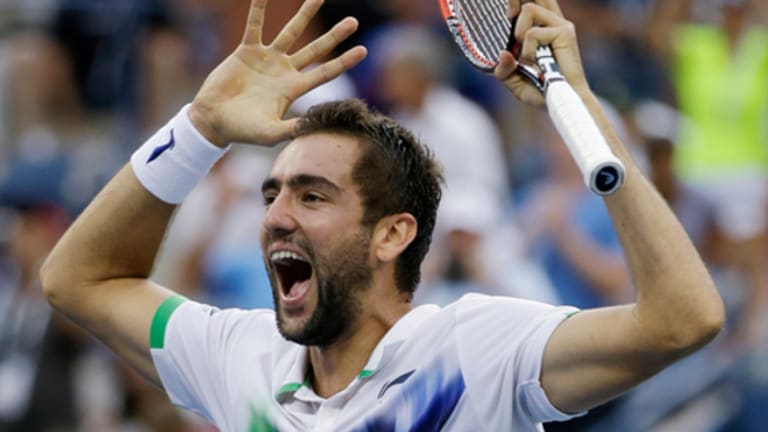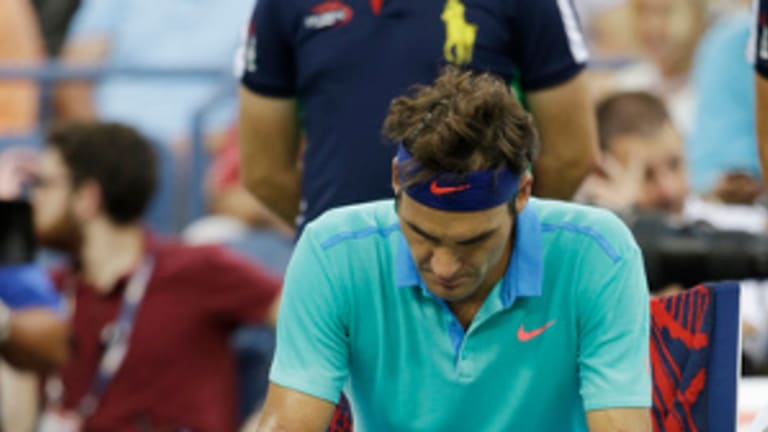NEW YORK—The U.S. Open field was free of other former Grand Slam champions when Roger Federer stepped on court for today's semifinal with Marin Cilic. The blue court offered opportunity, the roaring crowd provided plenty of support, but the 17-time Grand Slam champion ran into an imposing 6'6" roadblock.
Delivering a near-flawless serving performance, Cilic downsized the court in dismissing Federer, 6-3, 6-4, 6-4, to power into his first U.S. Open final. The day began with the crowd buzzing over the prospect of a Novak Djokovic-Federer final, but before the sun had set, a pair of first-time major finalists had crashed the party.
Hours after 10th-seeded Kei Nishikori dissected Djokovic to become the first Asian man to reach a major final, the No. 14 seed dismantled Federer to become the first Croatian man to reach a major final since his coach, Goran Ivanisevic, won Wimbledon on "People's Monday" in 2001. Monday's title match that will be the first Grand Slam final without a member of the Big Four since Marat Safin defeated Lleyton Hewitt at the 2005 Australian Open.
It's funny how career interruptions can inspire playing progression. Time off the tour treadmill gave the thoughtful Croat time to reflect on goals and retool his game to realize them. Cilic was serving a four-month drug suspension that sidelined him from the 2013 U.S. Open and says he spent that time training and dreaming of a comeback. When his shot at career revival arrived today, Cilic took it on the rise. Employing his expansive reach and predatory court positioning to shrink available open space, Cilic pounded away at Federer's backhand, hitting 15 more winners (43 to 28) than the second seed. He thumped 13 aces, faced only two break points and permitted just six points on his first serve.
Dictating play behind his darting serve that forced Federer to lunge at returns, Cilic hit five aces and won 13 of 15 first-serve points in breezing through the 28-minute opener. Takeover began with a helping hand: Federer squandered a 40-0 lead to drop serve and fall into a 1-3 hole. In the ensuing game, Cilic saved a break point with a smash and unleashed a 127 M.P.H. blast to hold for 4-1.
Federer did not play poorly in the opening set, but Cilic simply didn't allow him to play much at all when he had the ball in his hand. He reeled off seven straight points in sealing the first set, then earning triple break point in the opening game of the second set. A Federer backhand error gave Cilic the immediate break, and he quickly consolidated for 2-0.

